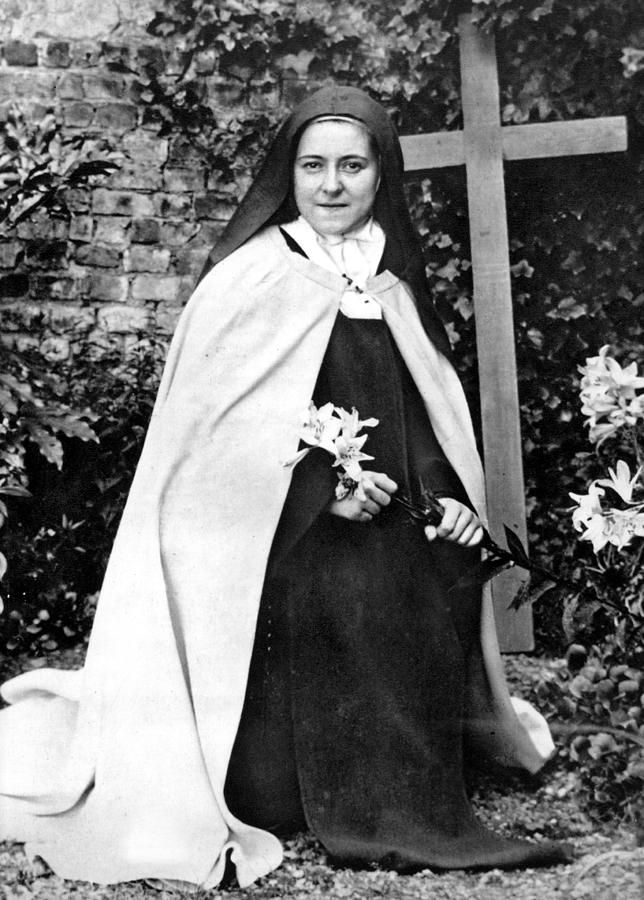Please prayerfully consider joining us and other Catholic women in helping to “Sow Lectio” (the practice of lectio divina) in the fields of our homes and parishes. God-willing, our lay apostolate will sow His Word through the ancient method of lectio divina, in order to foster a true, personal relationship with Our LORD and Savior, Jesus Christ.

How will we sow?
God-willing, we will sow lectio divina, as stated within our mission in the spirit of four of our patron saints: the 3 Teresa’s (St. Mother Teresa of Calcutta, St. Therese of Lisieux and St. Teresa of Avila) and St. Benedict of Nursia…all under the protection of Our Blessed Mother.
St. Mother Teresa of Calcutta said, “Stay where you are. Find your own Calcutta. Find the sick, the suffering, and the lonely, right where you are — in your own homes and in your own families, in homes and in your workplaces and in your schools. You can find Calcutta all over the world, if you have eyes to see.” May we see and serve those persons who are spiritually starving, dying from the daily lack of nutrition and drink of God’s Word. This is our “Calcutta” to serve.

St. Therese of Lisieux, a Doctor of the Church, with her “little way” of holiness, said, “To live in love is to sail forever, spreading seeds of joy and peace in hearts”. May we love and joyfully adore Jesus in His Word through the “little way” of lectio.

St. Teresa of Avila, another Doctor of the Church, taught how to hear the LORD in their “Interior Castle”, renewing inner contemplation and prayer. As prayer is a “heart-to-heart conversation with Him”, she also stated, “What great blessings God grants to a soul when He prepares it to love the practice of prayer”. May we unlock the doors of our own “interior castles” with the keys of lectio divina.

St. Benedict of Nursia incorporated lectio divina into his guide, The Rule of St. Benedict, for their monastic life. The motto for the Benedictine way of life is “ora et labora” (Latin for “pray and work”). He stated at the beginning of his rule, “Listen and attend with the ear of your heart.” May we “ora et labora” with the “ear of our hearts” in lectio divina throughout our day.

How can you become a Sister Sower?
A Sister Sower is open to all married and single women. In order to be recognized as a beginning member of this Catholic apostolate, after prayerful discernment, a Sister Sower commits to:
- “feed and drink” on His Word by practicing individual lectio at least once a week (preferably Sunday’s Mass readings)
- completing the Lectio: Prayer | Finding Intimacy with God (6-session course by the Augustine Institute found on Formed or bring it to your parish)
- join us by registering, please see contact form below
To remain an active member of our apostolate after the above commitment, a Sister Sower will continue to “Sow Lectio” additionally once a month in one “little way” within her parish and/or her family. Here are some ideas:
- facilitate or bring the Lectio: Prayer study to your parish
- submit an announcement highlighting the practice of lectio in the bulletin
- teach lectio divina to a family member/friend
- share flyers or brochures on lectio
- donate books on lectio to your parish library
- read a recommended book on lectio
- start parish/group meetings with a “little lectio”
- encourage family lectio
- share a meal of God’s Word from Sunday’s readings in a small group by leading/participating/forming a Collatio
- pray the litany for our apostolate
- participate in a Sisters of the Word Apostolate event
- distribute SOW Lectio Seed Packets
- witness to someone how lectio divina has personally impacted you
What are the tools of a Sister Sower?
A Sister Sower:
- wears a scapular and/or a miraculous medal and/or carries the rosary
- carries the Bible in either digital or book format
Following the footsteps of Our Blessed Mother, we are “contemplatives in action”, just as Mary went in haste, while bringing Jesus, to joyfully visit and greet her cousin, Elizabeth.
SOW, Let’s Lectio!
Please fill out the contact information, if you would like to join us or have any questions.
